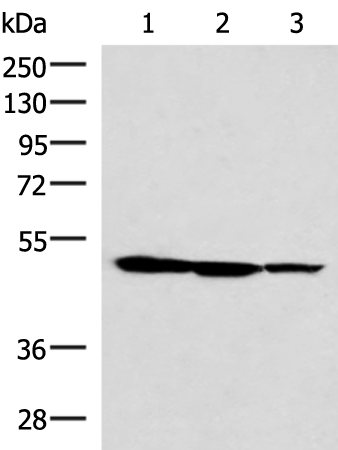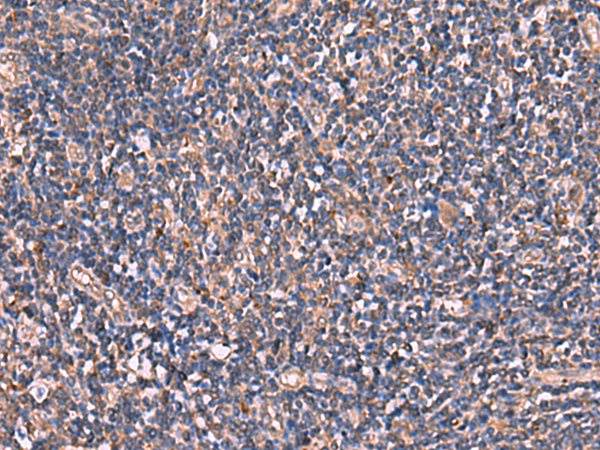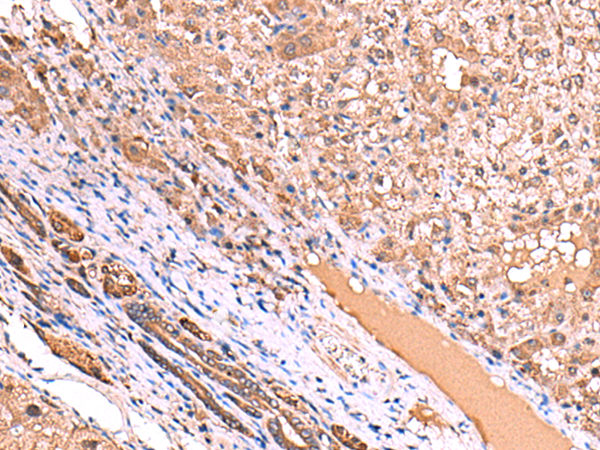


| WB | 咨询技术 | Human,Mouse,Rat |
| IF | 咨询技术 | Human,Mouse,Rat |
| IHC | 1/50-1/300 | Human,Mouse,Rat |
| ICC | 技术咨询 | Human,Mouse,Rat |
| FCM | 咨询技术 | Human,Mouse,Rat |
| Elisa | 1/5000-1/10000 | Human,Mouse,Rat |
| Aliases | LL22NC03-5H6.5 |
| WB Predicted band size | 53 kDa |
| Host/Isotype | Rabbit IgG |
| Antibody Type | Primary antibody |
| Storage | Store at 4°C short term. Aliquot and store at -20°C long term. Avoid freeze/thaw cycles. |
| Species Reactivity | Human, Mouse |
| Immunogen | Fusion protein of human TTC38 |
| Formulation | Purified antibody in PBS with 0.05% sodium azide and 50% glycerol. |
+ +
The TTC38 antibody is a research tool designed to detect Tetratricopeptide Repeat Protein 38 (TTC38), a protein encoded by the TTC38 gene in humans. TTC38 belongs to the tetratricopeptide repeat (TPR) family, characterized by tandem 34-amino-acid motifs that mediate protein-protein interactions. It is primarily expressed in metabolically active tissues, including the liver, pancreas, and kidneys. While its precise biological function remains under investigation, TTC38 is proposed to participate in cellular processes such as protein complex assembly, RNA processing, and metabolic regulation. Studies suggest it may interact with components of the COP9 signalosome or RNA-binding proteins, implicating roles in ubiquitination pathways or post-transcriptional gene regulation.
Research using TTC38 antibodies has linked this protein to metabolic disorders. For instance, TTC38 deficiency in mice models has been associated with altered lipid metabolism, hepatic steatosis, and insulin resistance, highlighting its potential relevance to obesity and type 2 diabetes. Additionally, TTC38 expression variations have been observed in certain cancers, though its oncogenic or tumor-suppressive role remains unclear. Commercial TTC38 antibodies are typically validated for applications like Western blotting, immunohistochemistry, or immunofluorescence to assess protein expression, localization, and interaction partners. Challenges include ensuring antibody specificity due to shared epitopes within TPR domains. Ongoing studies aim to clarify TTC38's molecular mechanisms and therapeutic potential in metabolic and neoplastic diseases.
×